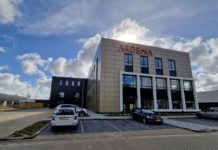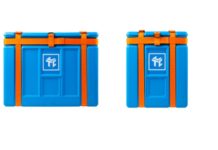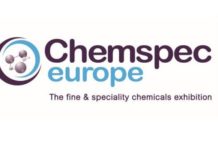Pfizer Inc announced the European Medicines Agency (EMA) has accepted the Marketing Authorization Application (MAA) for TRUMENBA® (Meningococcal Group B Vaccine) for review.
TRUMENBA has been developed for the prevention of invasive meningococcal disease (IMD) caused by Neisseria meningitidis serogroup B (MnB) in individuals aged 10 years and older. The acceptance marks the beginning of the regulatory review process for this vaccine in the EU.
The EMA’s acceptance of TRUMENBA’s Marketing Authorization Application brings us one step closer to fighting this uncommon yet life-threatening disease worldwide, by helping to protect adolescents and adults who are at risk to contract meningococcal disease caused by serogroup B,” said Kathrin Jansen, Ph.D., senior vice president and head of Vaccine Research and Development for Pfizer Inc. “At Pfizer we are committed to providing innovative vaccines that help people live the longest, healthiest lives possible.”
The MAA for TRUMENBA is based upon a clinical trial dataset of approximately 20,800 adolescents and adults aged 10 years and older, studied globally. This dataset demonstrates the consistency of vaccine-induced immune responses to diverse disease-causing MnB strains and the well-studied safety and tolerability profile.1
Vaccines are one of the greatest public health advances, demonstrating control, elimination or near-elimination of numerous infectious and vaccine-preventable diseases. Pfizer’s portfolio is built with vaccines that help protect against five of the most common serogroups causing invasive meningococcal disease (A, B, C, W and Y) – approvals varying by country – which can threaten the health of people at various points in their lives.
TRUMENBA is currently approved in the U.S.
About TRUMENBA® (Meningococcal Group B Vaccine)
TRUMENBA® is a sterile suspension composed of two recombinant lipidated factor H binding protein (fHBP) variants from N. meningitidisserogroup B, one from fHBP subfamily A and one from subfamily B (A05 and B01, respectively). fHBP is one of many proteins found on the surface of meningococci and contributes to the ability of the bacterium to avoid host defenses. fHBPs can be categorized into two immunologically distinct subfamilies, A and B. The susceptibility of serogroup B meningococci to complement-mediated, antibody-dependent killing following vaccination with TRUMENBA is dependent on both the antigenic similarity of the bacterial and vaccine fHBPs, as well as the amount of fHBP expressed on the surface of the invading meningococci.2
About Meningococcal Disease
Meningococcal disease can affect any one, at any age.3 The reported incidence of invasive meningococcal disease (IMD) varies by region, ranging from less than 0.5 cases per 100,000 in North America and just under 1 case per 100,000 in Europe, and up to 10-1,000 cases per 100,000 during epidemic years in Africa.4 The majority of invasive meningococcal disease cases worldwide can be attributed to sixNeisseria meningitidis serogroups (A, B, C, W, X and Y).4,5
Meningococcal serogroup B disease affects all ages. In Europe, the majority of meningococcal disease cases are caused by serogroup B strains.6 Global serogroup distribution patterns vary between countries, and change over time.4
Pfizer Inc.
At Pfizer, we apply science and our global resources to bring therapies to people that extend and significantly improve their lives. We strive to set the standard for quality, safety and value in the discovery, development and manufacture of health care products. Our global portfolio includes medicines and vaccines as well as many of the world’s best-known consumer health care products. Every day, Pfizer colleagues work across developed and emerging markets to advance wellness, prevention, treatments and cures that challenge the most feared diseases of our time. Consistent with our responsibility as one of the world’s premier innovative biopharmaceutical companies, we collaborate with health care providers, governments and local communities to support and expand access to reliable, affordable health care around the world. For more than 150 years, Pfizer has worked to make a difference for all who rely on us. For more information, please visit us at www.pfizer.com.
1 Pfizer Data on File
2 TRUMENBA® (Meningococcal Group B Vaccine) Prescribing Information. Philadelphia, PA: Pfizer, Inc. 2015.
3 World Health Organization. Epidemics of meningococcal disease, African meningitis belt, 2001. Wkly Epidemiol Rec. 2001; 76(37); 281-288. http://www.who.int/docstore/wer/pdf/2001/wer7637.pdf(link is external). Published 2001. Accessed February 10, 2016.
4 Halperin SA, et al. Vaccine. 2012;30(2):B26–36
5 Pinto VB, Burden R, Wagner A, Moran EE, Lee C. The Development of an Experimental Multiple Serogroups Vaccine for Neisseria meningitidis. PLoS ONE. 2013; 8(11):1-10.
Available at http://journals.plos.org/plosone/article?id=10.1371/journal.pone.0079304(link is external); Accessed February 1, 2016
6 World Health Organization. Meningococcal vaccines: WHO position paper, 2011. Wkly Epidemiol Rec. 2011; 86(47); 521-540.http://www.who.int/wer/2011/wer8647.pdf?
a=1(link is external). Published 2011. Accessed April 25, 2016.
7 Sabatini C, Bosis S, Semino M, Senatore L, Principi N, Esposito S. Clinical Presentation of Meningococcal Disease in Childhood. J Prev Med Hyg. 2012; 53: 116-119.
8 Brigham KS, Sandora TJ. Neisseria meningitidis: epidemiology, treatment and prevention in adolescents. Curr Opin Pediatr. 2009; 21: 437-443.
9 Borg J, Christie D, Coen PG, Pooy R, Viner RM. Outcomes of Meningococcal Disease in Adolescence: prospective, matched-cohort study.Pediatrics. 2009; 123: e502-e509.
10 Granoff D.M. (2013). Meningococcal vaccines. In Vaccine (pp. 388-418). Philadelphia, PA: Saunders.
Contact:
Sally Beatty, 347-330-7867
media.sally.beatty@pfizer.com
or
Investors:
Bryan Dunn, 212-733-8917
bryan.dunn@pfizer.com


























